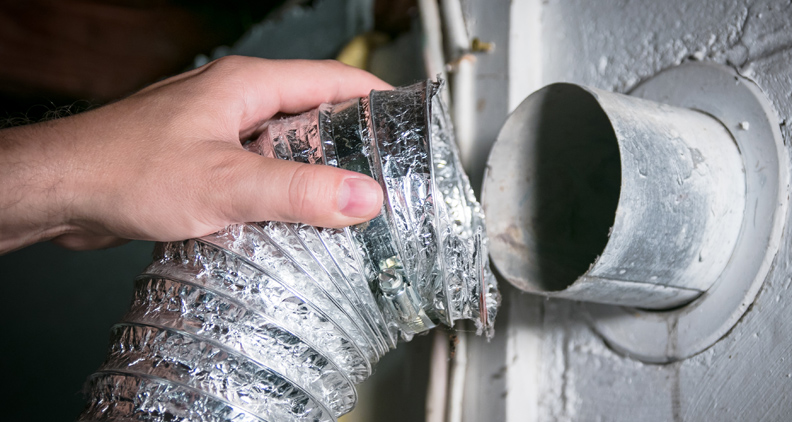When it comes to choosing the most reliable HVAC system, homeowners and business owners must take into consideration several factors. Technology advancements have led to a variety of options, making it a delightful challenge to select the most suitable system. This article will provide you with an in-depth understanding to help you make an informed decision.

Introduction to HVAC Systems
HVAC systems play a crucial role in maintaining indoor comfort by regulating temperature, humidity, and air quality. The term HVAC stands for Heating, Ventilation, and Air Conditioning. It’s a big decision to choose the right system, as it impacts not just comfort but also energy efficiency and cost.
Types of HVAC Systems
- Central Air Conditioning Systems
- Heat Pumps
- Ductless Mini-Split Systems
- Furnaces
- Boilers
- Hybrid HVAC Systems
- Geothermal Systems
Factors to Consider
Energy Efficiency
One of the most important factors to consider is energy efficiency. More efficient systems reduce energy consumption and save on utility bills. Ratings such as SEER (Seasonal Energy Efficiency Ratio) for air conditioners and AFUE (Annual Fuel Utilization Efficiency) for furnaces, help to measure this efficiency.
Durability and Lifespan
Another key consideration is the durability and lifespan of the HVAC system. Reliable systems usually come with longer warranties and require less frequent maintenance. Look for brands with a strong reputation for durability.
Cost
The initial cost of purchase and installation, as well as ongoing operational costs, should be weighed. Sometimes, a more expensive system offers better reliability and lower operational costs, proving to be more economical in the long run.
Climate and Environment
The local climate and environment also significantly impact the choice of an HVAC system. For example, geothermal systems may be more suitable for colder climates, while ductless mini-splits are excellent for more localized cooling in warmer regions.
Size and Installation
Choosing the right size for the HVAC system is crucial. An incorrectly sized system can lead to inefficiency, higher energy bills, and reduced comfort. Professional installation ensures the system functions at its maximum potential.
Top Reliable HVAC Brands
1. Trane
Trane is well-known for its high-quality, durable, and energy-efficient systems. Their products often come with excellent warranties and are specifically designed to last long.
2. Carrier
Carrier systems offer a variety of options tailored to different needs. Known for reliability and innovativeness, Carrier also provides strong customer support and warranties.
3. Lennox
Lennox is another prominent brand trusted for its energy efficiency and durable products. They offer advanced features and options suitable for various climates and preferences.
4. Rheem
Rheem provides a wide range of HVAC solutions known for their quality and reliability. Their products are also energy-efficient and come with comprehensive warranties.
Common Issues and How to Avoid Them
Improper Insulation
Poor insulation can lead to inefficient heating and cooling. Make sure your home or workplace is well insulated to maximize the effectiveness of your HVAC system.
Regular Maintenance
Regular maintenance is key to ensuring the longevity and efficiency of your HVAC system. Annual inspections and timely repairs can prevent minor issues from becoming major problems.
Air Quality
Maintaining good air quality is essential for health and comfort. Regularly clean or replace air filters, and consider professional air duct cleaning services. According to the EPA, maintaining clean air ducts is crucial for indoor air quality.
Troubleshooting HVAC Issues
Common Signs of Problems
Some common signs that your HVAC system may need attention include unusual noises, irregular temperature control, and increased energy bills.
Steps to Take
If you encounter issues, first check the thermostat settings and air filters. If problems persist, consult a professional HVAC technician for a thorough inspection and repair.
Conclusion
Choosing the most reliable HVAC system involves considering factors such as energy efficiency, durability, cost, and the specific needs of your environment. Brands like Trane, Carrier, Lennox, and Rheem are among the top choices due to their reliability and performance. Regular maintenance and proper installation are key to ensuring your HVAC system functions optimally for years to come.
environment. Brands like Trane, Carrier, Lennox, and Rheem are among the top choices due to their reliability and performance. Regular maintenance and proper installation are key to ensuring your HVAC system functions optimally for years to come.
FAQs
Q: How often should I maintain my HVAC system?
A: Its recommended to conduct maintenance at least once a year, typically before the start of the heating or cooling season.
Q: What size HVAC system do I need?
A: The size of the system depends on the specific needs of your building. Its best to consult with a professional to determine the correct size for optimal efficiency.
Q: Are there HVAC systems that are better for certain climates?
A: Yes, for example, geothermal systems are well-suited for colder climates, while ductless mini-split systems are ideal for hotter regions.
For additional resources, check out our detailed articles on commercial duct cleaning, residential duct cleaning, and treating mold in HVAC systems.